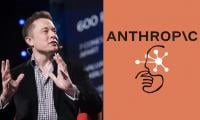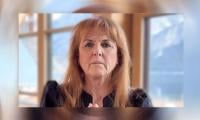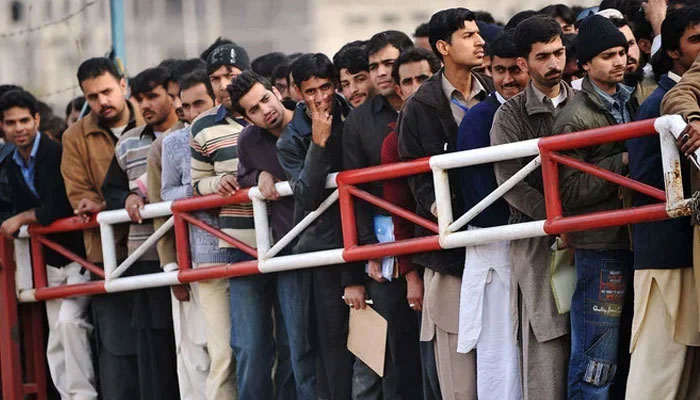S Asia’s loss in human development index due to inequality second highest
Islamabad: Dr Samuel Rizk, UNDP resident representative in Pakistan, has said that global solidarity and collective action are necessary to tackle shared global, regional and national development challenges such as inequality, pandemics and climate change.
Dr Rizk was speaking at Institute of Regional Studies (IRS) here Monday. Dr Rizk urged policymakers to prioritise education, health, economic empowerment, institutional accountability and resilience to climate-change for individual and collective well-being. “When we look at the current state of global affairs, we see a set of interlinked global problems that no country is immune to. However, the spirit of cooperation to address these global, systemic problems, which used to exist, has been weakened by polarisation and fractured multilateralism,” he said. He highlighted the widening gap between very high human development index (HDI) countries and low HDI countries.
Dr Rizk added that after factoring in inequality and fairness dimensions, South Asia’s loss in the HDI due to inequality was among the highest in the world, after sub-Saharan Africa. Yet, at the same time, much thinking and policymaking on human development actually originates in the South Asian region – be it Mahbub-ul-Haq or Amartya Sen.
Dr Rizk further shared that despite making progress on certain counts, Pakistan had fallen from medium human development in 2020-21 to low level of human development in 2023-2024, ranking 164th out of 193 countries – a score also low by the sub-region’s ranking He shared that, according to UNDP’s 2020 National Human Development Report on Inequality, the richest 20 per cent of Pakistanis had almost five times the income of the poorest 20 per cent.
Despite being 48 percent of the population, women’s inclusion remained in the social, political, and economic domains in Pakistan low, and 22 million school-age children were out of school. With 64 per cent of Pakistan’s population below the age of 30, Dr Rizk called for “targeted investments in education, employment, and engagement for reimagining this youth bulge - that some consider a liability - into an asset.”
For Pakistan, 2022-2024 have been characterised by multidimensional, concurrent challenges including the 2022 floods, macroeconomic stability, political transition and regional geostrategic developments. The mid- to long-term impact of these challenges and external shocks continue to take their toll on Pakistan’s most vulnerable groups.
Dr Rizk called for investments into human capital, economic stability and predictability (especially for the poorest segments), as well as horizontal and vertical trust as a foundation for effective policy and development action.
Building on the newly-released National Human Development Report for Pakistan 2024 on Digital Transformation, he urged Pakistanis to take advantage of the increasing digitalisation to promote more inclusion, equity and socioeconomic transformation. To sum up, he underscored the importance of pursuing and maintaining a development course of action that is people-centered and institutions-based development action to achieve human security, equality and prosperity.
Jauhar Saleem, President, IRS, remarked that human security entailed freedom from fear, freedom from want and freedom to live in dignity, while human development was about promoting long and healthy lives, providing access to knowledge and ensuring a decent standard of living for all. He underscored that the progress of South Asian countries towards achieving the UN’s Sustainable Development Goals was slightly lower than the global average.
-
 King Hospitalized In Spain, Royal Family Confirms
King Hospitalized In Spain, Royal Family Confirms -
 Japan Launches AI Robot Monk To Offer Spiritual Guidance
Japan Launches AI Robot Monk To Offer Spiritual Guidance -
 Japan Plans Missile Deployment Near Taiwan By 2031 Amid Growing Regional Tensions
Japan Plans Missile Deployment Near Taiwan By 2031 Amid Growing Regional Tensions -
 Meghan Markle, Prince Harry Spark Reactions With Latest Announcement
Meghan Markle, Prince Harry Spark Reactions With Latest Announcement -
 Kate Hudson Reflects On Handling Award Season With No Expectations
Kate Hudson Reflects On Handling Award Season With No Expectations -
 6 Celebrities Who Have Been Vocal About Anxiety And 'panic Attacks'
6 Celebrities Who Have Been Vocal About Anxiety And 'panic Attacks' -
 Is This The Future Of Train Travel? Robot Dogs, Drones Are Redefining Public Transit Safety Through China’s New Metro Station Deployment
Is This The Future Of Train Travel? Robot Dogs, Drones Are Redefining Public Transit Safety Through China’s New Metro Station Deployment -
 Sarah Ferguson Seeks Hollywood Backing As Epstein Files Resurface
Sarah Ferguson Seeks Hollywood Backing As Epstein Files Resurface -
 China’s AI Milestone: ByteDance’s Doubao Chatbot Hits 100M Users During Lunar New Year
China’s AI Milestone: ByteDance’s Doubao Chatbot Hits 100M Users During Lunar New Year -
 Think You Know ChatGPT? Here Are 5 AI Levels You’ve Never Seen
Think You Know ChatGPT? Here Are 5 AI Levels You’ve Never Seen -
 Bitcoin Bounces From $62,000 As On-chain Metrics Signal Prolonged Weakness: Here Is Everything To Know
Bitcoin Bounces From $62,000 As On-chain Metrics Signal Prolonged Weakness: Here Is Everything To Know -
 Elon Musk Teases Official Grok CLI For Developers As AI Rivalry With Anthropic Heats Up
Elon Musk Teases Official Grok CLI For Developers As AI Rivalry With Anthropic Heats Up -
 Jennifer Aniston Ready To Walk Down The Aisle Again?
Jennifer Aniston Ready To Walk Down The Aisle Again? -
 Sarah Ferguson’s Plan Now That Andrew Is Thrown Into The Fire: ‘She’s Not Certain She’ll Come Out The Other Side’
Sarah Ferguson’s Plan Now That Andrew Is Thrown Into The Fire: ‘She’s Not Certain She’ll Come Out The Other Side’ -
 ‘The AI Doc’: What AI Leaders Told Daniel Roher Will Keep You Up At Night
‘The AI Doc’: What AI Leaders Told Daniel Roher Will Keep You Up At Night -
 Sarah Ferguson In Hiding As Arrest Fears Grow After Andrew Was Taken Into Custody
Sarah Ferguson In Hiding As Arrest Fears Grow After Andrew Was Taken Into Custody




